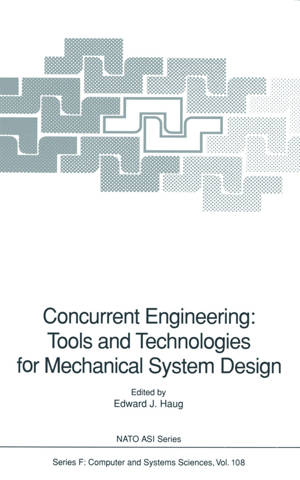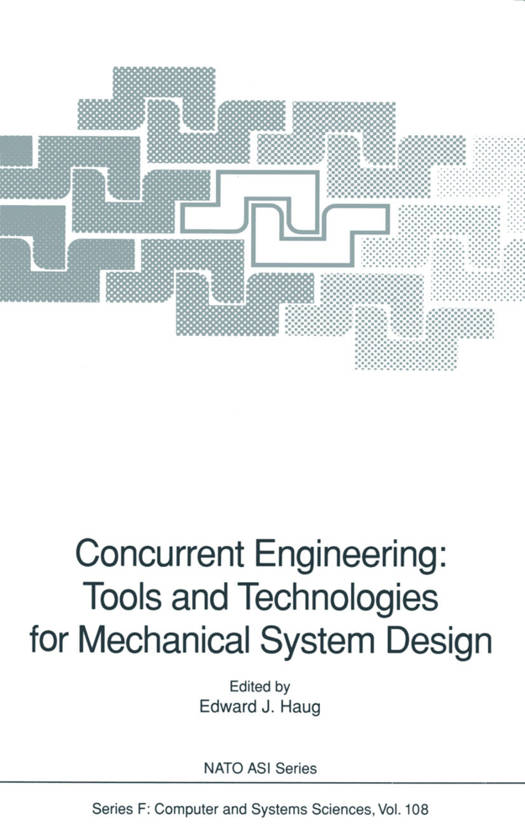
- Afhalen na 1 uur in een winkel met voorraad
- Gratis thuislevering in België vanaf € 30
- Ruim aanbod met 7 miljoen producten
- Afhalen na 1 uur in een winkel met voorraad
- Gratis thuislevering in België vanaf € 30
- Ruim aanbod met 7 miljoen producten
Zoeken
Concurrent Engineering: Tools and Technologies for Mechanical System Design
€ 52,95
+ 105 punten
Omschrijving
These proceedings contain lectures presented at the NATO Advanced Study Institute on Concurrent Engineering Tools and Technologies for Mechanical System Design held in Iowa City, Iowa, 25 May -5 June, 1992. Lectures were presented by leaders from Europe and North America in disciplines contributing to the emerging international focus on Concurrent Engineering of mechanical systems. Participants in the Institute were specialists from throughout NATO in disciplines constituting Concurrent Engineering, many of whom presented contributed papers during the Institute and all of whom participated actively in discussions on technical aspects of the subject. The proceedings are organized into the following five parts: Part 1 Basic Concepts and Methods Part 2 Application Sectors Part 3 Manufacturing Part 4 Design Sensitivity Analysis and Optimization Part 5 Virtual Prototyping and Human Factors Each of the parts is comprised of papers that present state-of-the-art concepts and methods in fields contributing to Concurrent Engineering of mechanical systems. The lead-off papers in each part are based on invited lectures, followed by papers based on contributed presentations made by participants in the Institute.
Specificaties
Betrokkenen
- Uitgeverij:
Inhoud
- Aantal bladzijden:
- 998
- Taal:
- Engels
- Reeks:
- Reeksnummer:
- nr. 108
Eigenschappen
- Productcode (EAN):
- 9783642781216
- Verschijningsdatum:
- 16/12/2011
- Uitvoering:
- Paperback
- Formaat:
- Trade paperback (VS)
- Afmetingen:
- 170 mm x 244 mm
- Gewicht:
- 1587 g

Alleen bij Standaard Boekhandel
+ 105 punten op je klantenkaart van Standaard Boekhandel
Beoordelingen
We publiceren alleen reviews die voldoen aan de voorwaarden voor reviews. Bekijk onze voorwaarden voor reviews.










